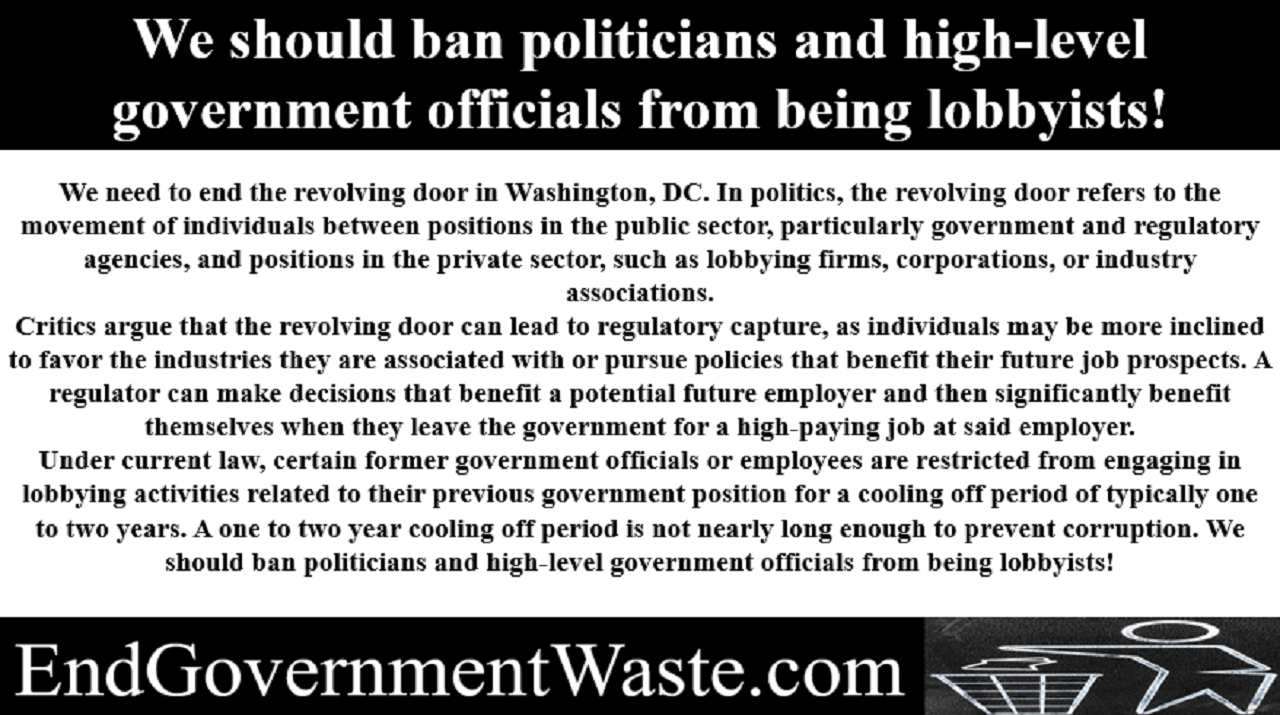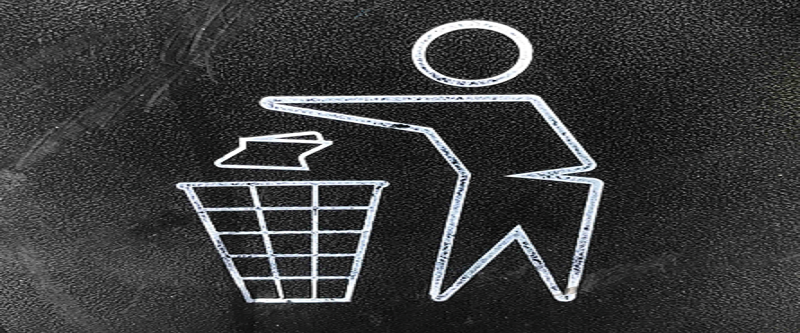

We should ban politicians and high-level government officials from being lobbyists!
We need to end the revolving door in Washington, DC. In politics, the revolving door refers to the movement of individuals between positions in the public sector, particularly government and regulatory agencies, and positions in the private sector, such as lobbying firms, corporations, or industry associations.
The revolving door can take different forms, including:
- Government to industry: Public officials or regulators leaving their positions in government or regulatory agencies to work for private companies or industry associations that they previously regulated or had oversight over. This allows them to leverage their inside knowledge, connections, and influence for the benefit of their new employers.
- Industry to government: Individuals from the private sector, particularly those affiliated with industries or interest groups, move into government positions where they can shape policies and regulations that directly impact their former employers or industries. They may use their industry experience and connections to influence decision-making in favor of the industry they represent.
Critics argue that the revolving door can lead to regulatory capture, as individuals may be more inclined to favor the industries they are associated with or pursue policies that benefit their future job prospects. A regulator can make decisions that benefit a potential future employer and then significantly benefit themselves when they leave the government for a high-paying job at said employer. It can undermine the integrity and impartiality of the regulatory process by blurring the line between regulators and the regulated.
Under current law, certain former government officials or employees are restricted from engaging in lobbying activities related to their previous government position for a cooling off period of typically one to two years. The purpose of a cooling off period is to prevent conflicts of interest, undue influence, and the potential for corruption. These restrictions typically apply to high-ranking officials or individuals who held influential positions that could potentially exploit their knowledge and connections for personal gain.
A one to two year cooling off period is not nearly long enough to prevent corruption. We should ban politicians and high-level government officials from being lobbyists!
-EndGovernmentWaste.com & AI
